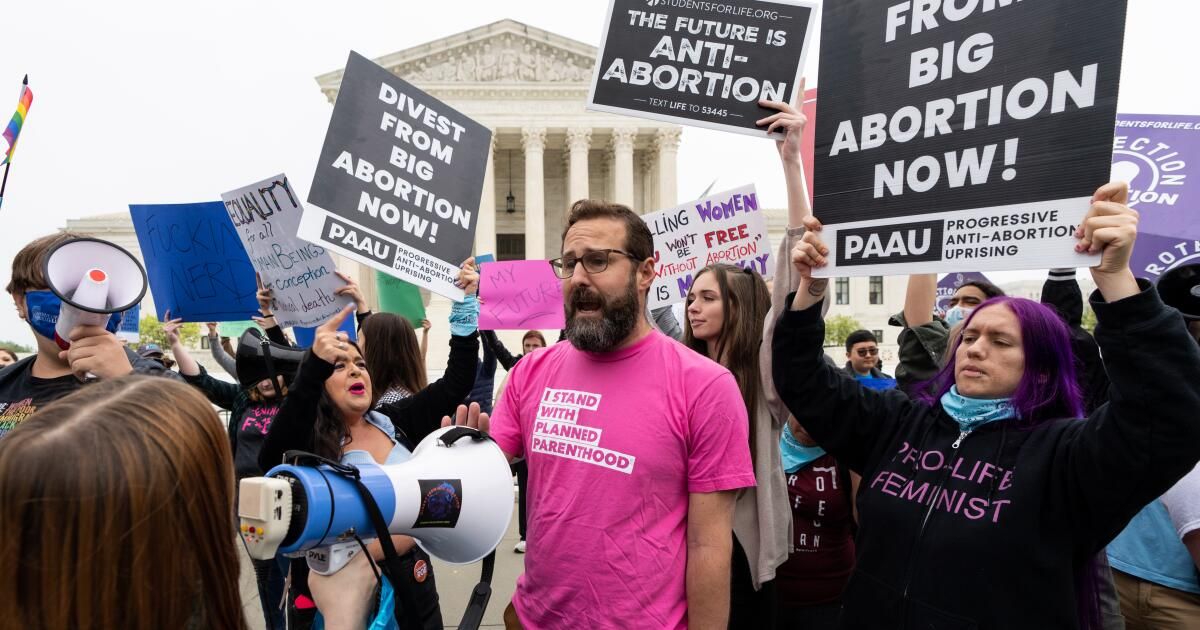The Supreme Court on Tuesday rejected an Oklahoma abortion-related appeal, ruling that the Biden administration could cut funding to family planning programs that fail to offer pregnant patients “objective information” about all their options, including abortion.
In a one-line order, the justices rejected Oklahoma's appeal despite dissents from Justices Clarence Thomas, Samuel A. Alito Jr. and Neil M. Gorsuch.
Attorneys for the state argued that Oklahoma opposed all abortions and should not be required to refer women for abortions.
In defense of longstanding federal guidelines, the Biden administration said these programs are not required to do anything more than give patients “the phone number of a third-party hotline” that can provide information about prenatal care, adoptions or abortions.
In early August, Oklahoma attorneys filed an emergency appeal with the Supreme Court seeking to reinstate a $4.5 million grant, asserting the state’s authority to enforce its ban on all abortions.
Two years ago, when the court struck down abortion rights in Dobbs, the justices in the 5-4 majority said they were returning the abortion question to the states.
Oklahoma officials told the court they were “exercising that right… The elected representatives of the people of Oklahoma have prohibited abortion except to preserve the life of a woman, and have made it illegal to advise a woman to obtain an abortion.”
At issue was a federal program that since 1970 has provided grants to states for family planning programs.
Congress has said that these “Title X” grants cannot be used “for programs where abortion is a method of family planning.”
In 2004, Congress passed the Weldon Amendment, which stated that the government could not discriminate against hospitals, insurers or other health care programs that refused to pay for or refer patients for abortions. Oklahoma cited both laws in its appeal.
But under Democratic administrations, federal officials have required states and their grant programs to offer patients “neutral, objective information and nondirective counseling” about their options, including prenatal care, adoption and abortion.
Oklahoma initially agreed to comply with these rules, but last year changed its mind and refused to provide patients with a customer service phone number where they could get more information if they wanted it. At that time, the Department of Health and Human Services canceled the state's small grant.
Oklahoma sued and lost before a federal judge and the 10th U.S. Circuit Court of Appeals in Denver. Those judges ruled in favor of the Biden administration, saying state grant recipients were not being asked to provide referrals for abortions. The “mere act of sharing the domestic phone number” would not “constitute a referral for the purpose of facilitating an abortion,” the appeals court said in a 2-1 decision.
State attorneys sought an order reinstating its concession.
Attorney General Elizabeth Prelogar urged the court to reject the appeal. Oklahoma has refused to “comply with the agreed-upon conditions, which are currently in effect for all other Title X recipients in the country,” she said.
Tennessee, Ohio and 10 other Republican-led states also filed lawsuits challenging the administration's rules for Title X grants, but none of them prevailed in lower courts.












